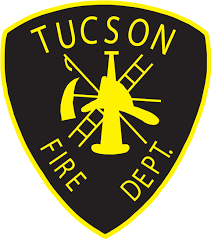As the city faces a $25.6 million deficit, the Tucson Fire Department is finding ways to reduce spending.
“This is probably the second largest cut that I’ve had to take in the five years that I’ve been fire chief,” said TFD Chief Jim Critchley.
A memo sent to Tucson Fire employees last week outlines proposed changes that would save the city $4.7 million.
The plan includes:
– reducing vacant staff positions at logistics, which includes an emergency vehicle tech supervisor ($177,450)
– reclassifying 13 paramedic positions to firefighters, which means three engines could operate without paramedics who have advanced life-saving capabilities ($323,470)
– eliminating one of the four Rescue Truck units ($682,000)
– reassigning inspectors and other positions which could result in demotions ($438,890)
– reducing overtime, including cutting a paramedic class. Firefighters would not be able to be trained and promoted to paramedic positions ($3,162,400)
Critchley says each budget cycle is incredibly difficult and the department has had to deal with cuts every year. TFD responds to roughly 80,000 calls a year, and according to a 2015 report the average response time for heart attack calls is 4 minutes and 47 seconds.
Under his proposal, Critchley does not believe response times will change.
“They will get a first response, maybe EMTs initially, but within 8 minutes they will get a paramedic to their scene,” Critchley said. “It may just delay the paramedics getting to the scene, or maybe nothing at all.”
Nearly every engine includes a paramedic now, and under the proposed plan that could change. When you dial 911 the questions you are asked will help decide the level of service the person needs, Critchley said. Heart attack calls, for example, will continue to immediately get the most advanced life-saving technology.
“We’ve gotten complaints that we weren’t sending the right resources to the right call,” Critchley said. “We were sending too many people to a stubbed toe.”
“To send a paramedic truck and fire engine to every call, that’s not utilizing taxpayer money in an appropriate way,” Critchley said.
When asked about how demotions may impact recruiting, Critchley says he’s more concerned about how his own crew will absorb the changes. He said any time is a terrible time to demote, and he will work really hard to avoid demotions.
“The citizens I hope will not see the difference because the firefighters on this department do a great job,” Critchley said. “It’s just the paramedics will take a little longer to get there, but the EMTs can take care of it just fine.”
Joe Fyffe is a spokesperson for the Tucson Firefighters Association, which represents about 630 fire crews. The department has an additional 140 employees. While Fyffe says the proposed cuts will definitely have an impact on the department and the community, it’s too early to tell exactly how.
“If the city wishes to maintain it’s current level of service, we’re going to need to collectively find new sources of revenue,” Fyffe said.
In his memo, Critchley said despite the possible budget changes their mission to protect the lives and property of the citizens of Tucson will not change.
Lane Mandle, a spokesperson for the city says the Tucson Fire operating budget is around $99 million. About 95% of that comes from the city’s general fund, and 5% from grants.
The Tucson City Council will discuss the budget at the study session on Tuesday, March 22.
The final budget won’t be approved until June, and would go into effect the next fiscal year on July 1.


